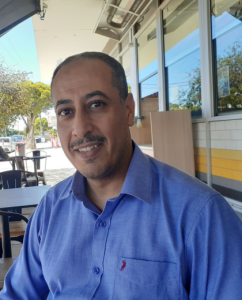Better harnessing migrants’ skills could add $10billion to Australia’s economy
Better utilising the skills and experience migrant and refugees bring with them could benefit Australia’s economy by as much as $10 billion over five years, according to a new study.
Supporting new arrivals to re-establish their professional careers in Australia could generate more than $2.5 billion in extra tax receipts as well as an extra $8 billion in earning circulating in the economy over five years, the study found.
 The extra access to skills could also produce a ten per cent spike in productivity while adding more than $10 billion to Australia’s GDP over five years.
The extra access to skills could also produce a ten per cent spike in productivity while adding more than $10 billion to Australia’s GDP over five years.
The study, titled ‘Untapped: How Australia can reap economic benefits from better utilising the skills of migrants and refugees’, commissioned by migrant and refugee settlement agency AMES Australia, found up to 49 per cent of skilled migrant are not using all of the professional skills, experience and qualifications after arrival in Australia.
It found migrants and refugees in unskilled jobs earned, on average, $51,376 per year and paid $7,164 in tax while migrants in skilled jobs, on average, earned $82,056 per year and paid $17,135 in tax.
The study said barriers to migrants reaching their full potential included a lack of local experience and networks, unfamiliarity with Australian workplace culture and the job market as well as language or pronunciation.
The report says an intensive support program delivered early in migrants’ settlement journeys could achieve positive results in supporting migrant and refugees achieve their career aspirations.
It says one such program, the Skilled Professional Migrant Program (SPMP) has helped 77 per cent of participants find work within six months. Fifty-eight percent were in professional work aligned with their qualifications – a figure which rose to 91 per cent within two years of completing the program.
The SPMP costs around $1000 per student to deliver. An investment of around $10 million a year would extend the program to 10,000 extra skilled migrants.
The report’s co-author economist Dr Ian Pringle said: “It’s clear improved employment outcomes among migrants and refugees would deliver a dividend to the Australia economy and go some way towards addressing the skills shortages we are seeing across most sectors”.
“Instead of arguing about what the migrant intake level is, maybe we should be trying to better leverage the skills and qualifications of migrants and refuges who are already here or who are part of the current intake levels,” he said.
AMES Australia CEO Cath Scarth said many newly arrived skilled migrants and refugees struggled to find employment commensurate with their skills and qualifications.
“We know from our experience supporting skilled migrants and refugees that early intervention and programs that connect migrants with career pathways can have a huge impact,” Ms Scarth said.
“We believe there is an economic argument for a national program that supports skilled migrants and refugee to find employment that fits with their skills qualifications as they begin their settlement journeys in Australia,” she said.
Skilled migrant and medical scientist Dr Mohammad Alshawsh struggled to resume his professional career in Australia.
But after completing the SPMP course, he gained a job at Monash University.
“The program was an excellent opportunity for me to connect with other skilled migrants and learn more about the Australian job market.
“It gave me strategies, networking opportunities and knowledge of Australian workplace culture. When I arrived, I had no idea about Australian workplaces.
“The SPMP program also provided me with a mentor who gave me practical tips such as how to tailor a resume and cover letter to meet Australian expectations as well as tips and advice on how to secure a job.
“For people new to Australia, the program is excellent. It’s really useful and every new skilled migrant would benefit from attending this program,” Dr Alshawsh said.












